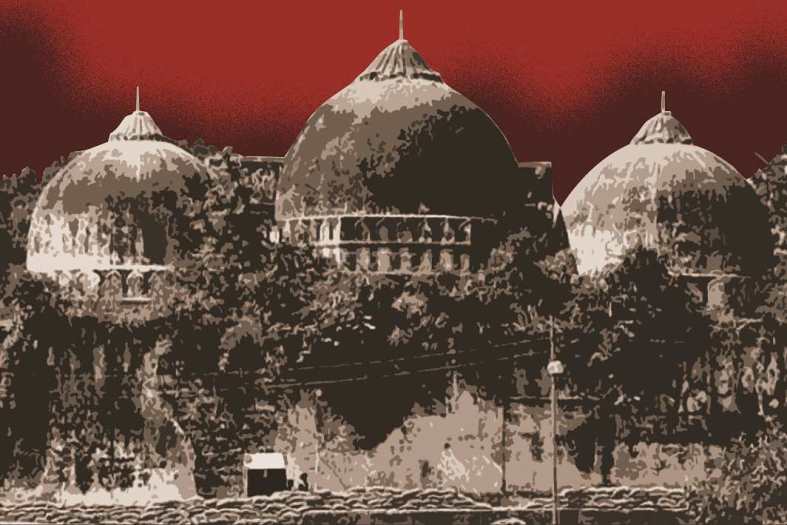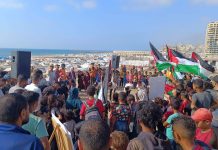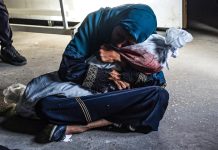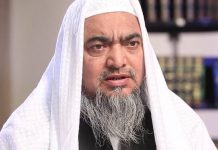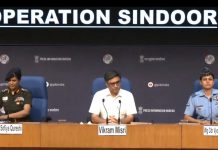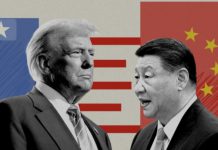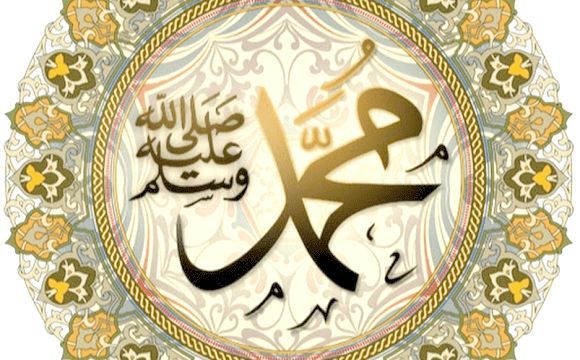Md Irshad Ayub
Supreme Court will be delivering the Ayodhya verdict on November 9 (Saturday) at 10:30 am. A Constitution Bench headed by the Chief Justice of India is set to deliver the verdict in the seven-decade-old, the prolonged and politically sensitive case of Ramjanmabhoomi-Babri Masjid title dispute. A civil dispute on who owns the title of 67.703 acres of land in Ayodhya has, over the years, turned into a religious and political battle.
After hearing the Ayodhya dispute for a period of 40 days, the Supreme Court bench reserved its judgment on the last day of the hearing on October 16. Other members of the five-judge constitution bench are Justices SA Bobde, D Y Chandrachud, Ashok Bhushan and S Abdul Nazeer.
The SC will deliver its verdict on 14 lawsuits that were filed against the 2010 Allahabad High Court judgment on the Ayodhya land dispute. The high court had partitioned the 2.77 acre land in Ayodhya equally among the Sunni Waqf Board, the Nirmohi Akhara and Ram Lalla.
Modi urges people to maintain peace and harmony
Prime Minister Narendra Modi has appealed on twitter for peace and calm ahead of the Ayodhya verdict in the Ram Janmabhoomi-Babri Masjid land dispute. He said whatever the Supreme Court decides will not be loss or victory for any party and harmony must be maintained at all cost.
PM Modi said the top court’s verdict should not be considered as victory or defeat of any one section. “Whatever be the decision of the Supreme Court on Ayodhya, it will not be a victory or defeat for anyone,” he tweeted. “My appeal to the countrymen is that it should be the priority of all of us that this decision should further strengthen the great tradition of peace, unity, and goodwill of India,” he added.
On December 6, 1992, ‘karsevaks (Hindu ultra extremist)’ razed the 16th century the Babri Masjid structure down, triggering widespread riots across the Indian subcontinent that left 2,000 people dead. Most of them were Muslims. The Uttar Pradesh government was dismissed.
Security Beefed Up At Site:
Earlier in the day, Chief Justice of India Ranjan Gogoi held a meeting with Uttar Pradesh chief secretary and director general of police and took stock of security arrangements. All schools, colleges, educational institutions, and training centres will be closed from Saturday to Monday across Uttar Pradesh.
Multi-layered security arrangements have been put in place in the temple town of Ayodhya with drones being used to monitor the situation ahead of the apex court judgment in the Ramjanmabhoomi-Babri Masjid land dispute case.
Elaborating on the security arrangements, Additional Director General of Police (Law and Order) PV Ramasastry told PTI, “Adequate forces have been provided to Ayodhya and all sensitive districts of the state in good measure. The force has been sufficiently strengthened in terms of CAPF and PAC companies.”
The Centre has rushed additional 4,000 paramilitary forces to Uttar Pradesh ahead of the Ayodhya verdict. Section 144 has been deployed across Uttar Pradesh, Jammu and Kashmir and parts of Karnataka. Police across the nation are keeping a close watch on social media for any objectionable post.
Chronology of events in Ramjanmabhoomi-Babri Masjid land dispute case:
October 16, 2019: Supreme Court reserves Ayodhya verdict after 40-day marathon hearing.
August 6, 2019: The Constitution bench begins hearing the cross-appeals filed by the Hindu and Muslim sides challenging the three-way partition of the disputed 2.77 acres of the land.
March 8, 2019: The top court refers to the Ayodhya dispute for mediation. The mediators are former Supreme Court judge FMI Kalifulla, religious leader Sri Sri Ravishankar, and senior advocate Sriram Panchu.
August 2, 2019: The mediation panel failed to resolve the Ayodhya land title dispute case. The court decides to conduct daily hearings from August 6.
November 9, 2019: The Supreme Court will pronounce its judgement in the Ayodhya land dispute case.
March 8, 2019: Supreme Court refers to the dispute for mediation by a panel headed by former apex court judge F M I Kallifulla.
January 8, 2019: Supreme Court notifies that a five-judge bench led by the CJI and the next four future Chief Justices of India in line of seniority – Justices SA Bobde, NV Ramana, UU Lalit, and DY Chandrachud – will hear the Ayodhya title dispute appeals.
October 29, 2018: A three-judge bench led by Chief Justice of India Ranjan Gogoi orders that the dispute appeals will be listed in January 2019 before an appropriate bench to fix a date for the hearing.
March 21, 2017: SC asked both the parties in the Ram Janmbhoomi-Babri Masjid dispute to resolve their differences amicably outside court and even offered to mediate.
February 26, 2016: SC permitted BJP leader Subramanian Swamy to intervene in the pending matters relating to the Ayodhya dispute with his plea seeking construction of Ram temple at the site of the demolished disputed structure.
September 28, 2010: The apex court rejected petition for deferment and gave nod to Allahabad HC to deliver the judgement. The HC ruled for a three-way division of the disputed area, between the Sunni Waqf Board, the Hindu Nirmohi Akhara and the party representing ‘Ram Lalla’ (deity Ram).
September 23, 2010: The plea for an out-of-court settlement reached Supreme Court (SC) and the apex body said it would hear it again on September 28.
September 14, 2010: A writ was filed to defer the judgement but was subsequently rejected by HC.
July 26, 2010: The HC Bench reserved its judgement and advised all parties to solve the issue amicably.
August 31, 2003: All India Muslim Personal Law Board said it would challenge the ASI report.
August 22, 2003: ASI submitted its report to the HC, saying it had found features of a tenth century temple beneath the site of the mosque.
March 5, 2003: The Allahabad High Court (HC) ordered the Archeological Survey of India (ASI) to excavate the disputed site in order to determine whether a temple existed where the mosque stood.
December 6, 1992: The Babri mosque was brought down by leaders and workers of VHP and Hindu fundamentalist outfit Rashtriya Swayamsewak Sangh (RSS) and a makeshift temple was placed in its place. The Congress government at the Centre moved court for a status quo.
September 25, 1990: Advani launched a procession to garner countrywide support for the construction of Ram temple.
1989: The then Prime Minister Rajiv Gandhi allowed ground-breaking ceremony at an undisputed site close to the Babri mosque structure.
February 1, 1986: Faizabad district judge ordered the gates of the structure be opened for Hindus to offer darshan alone. They were not allowed to perform any other ritual. Babri Masjid Action Committee was formed soon after this.
1984: Hindu hardline body Vishwa Hindu Parishad (VHP) constituted a team to campaign for the construction of Ram temple at the disputed site. VHP chose Bharatiya Janata Party (BJP) leader LK Advani as the team head.
1961: Sunni Central Board of Waqfs filed a case claiming the Babri mosque, and argued that since the surrounding area was a graveyard, it should not be allocated for deity Ram.
1950: Chief of Ram Janmabhoomi Nyas (deity Ram Birthplace Movement) Mahant Paramhans Ramchandra Das filed suits in Faizabad in Uttar Pradesh (UP) seeking permission to pray before the idols installed inside the premises. The plea was allowed though the inner courtyard gates remained locked.
1949: In December 1949 Idols of Ram and Sita are placed under a central dome outside the disputed structure. It is not clear who placed these idols. The Muslim side claimed it was the handiwork of the Hindus, while the Hindus wanted to worship the idol. Violence broke out, and the administration locked the premises with the idol inside.
1885: Mahant Raghubir Das unsuccessfully knocked on the Faizabad district court’s doors seeking to build a canopy outside the site. The court rejects the plea.
1528: The Babri mosque was built by Mir Baqi, a commander of Mughal emperor Babar. The Hindus believe it was constructed on the foundations of a temple of which they say is the birthplace of Lord Ram, the seventh incarnation of Lord Vishnu.

